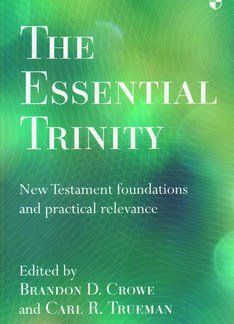This collective work bears witness to the increasing dominance of the doctrine of the Trinity in recent theological discussion. This has been partly in response to the influence of Karl Barth and Jürgen Moltmann.
The book is not for the faint-hearted; digging into it requires a certain technical expertise which will limit its readership. The chapters concern almost exclusively the Trinity in the New Testament. That said, there is an interesting contribution on Daniel and Revelation, as well as a final chapter on the Trinity in the Old Testament. The practical section deals with prayer, revelation, worship and preaching.
The contributors come from Europe, North America and Australia. This is a pity, given that, in Africa and the developing world, the Trinity faces new challenges from anti-trinitarianism of a different ilk.
This is the weakness of the ‘practical relevance’ section, as there is no apologetic engagement with the unitarianism of Judaism or Islam, surely the crying need for those working in missional situations.
It is regrettable that the section on the Trinity in the Old Testament is so brief, even though one can only approve the conclusion that ‘the verbal character of the Old Testament itself is fertile soil for a trinitarian hermeneutic, where the unity of the divine essence and the diversity of the divine personae are affirmed’ (p.187).
The Gospel of John played an important role in the elaboration of the doctrine of the Trinity. The contribution to this subject by Richard Bauckham is central. The Word had always been the Son of the Father, but only in the incarnation was this revealed. Bauckham refers, in this perspective, to the ‘I am’ sayings and makes a vital link between the prologue and the high priestly prayer of chapter 17, establishing the ‘personal co-inherence’ of the Father and the Son and the continuity of the immanent and the economic Trinity.
This opens out into a reflection on the Spirit with ‘two different roles of the Spirit in the world: as the divine life that flows from the Father and the Son … and as the divine agent who makes the revelation of the Father in Jesus known, after Jesus’ exaltation’ (p.106). This clear exposition of Johannine trinitarianism is appreciable.
The book concludes with a Scripture index, but unfortunately lacks a name index and subject index.
Paul Wells
Eastbourne








